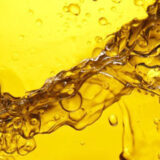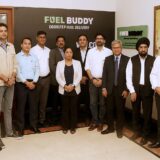Croda looks to expand halal manufacturing capability
With a potential market value of USD 274.1 billion for halal new growth clusters, global specialty chemical manufacturer Croda International plc based in East Yorkshire, U.K., is looking to expand its halal manufacturing capability. Halal is the Arabic term for permissible or lawful. Halal products are products considered suitable for consumption or use by the Muslim community.
It is estimated that by 2050, Muslims will make up 30% of the total world population of 2.6 billion, thus the demand for halal products are expected to grow.
“Croda is seeking to expand its product offerings to meet the needs of our customers and global consumers by certifying additional products and sites around the world to halal standards,” said Jena Kinney, Croda’s marketing director for Asia Pacific.
The company is conducting a global review of its halal manufacturing capabilities and analysing gaps between its current operations and halal certifiable ones. The execution phase, which will include investments to be made based on approved recommendations to increase its halal manufacturing capabilities and certification by a well-recognised halal certifying body, will start in the second quarter of this year, according to Wee Kuan Heng, Croda product safety advisor.
Kinney pointed out that there are different halal certification standards around the world, and since certification standards are typically developed for food, there is no clear answer on the requirements for non-food applications, citing this as one of the challenges being faced by Croda.
Croda has been manufacturing halal products in its Singapore facility for more than 20 years. Recently, its Rawcliffe Bridge, U.K., and Mevisa, Spain, plants and Atlas Point, Del., U.S.A. facility have also achieved halal certification for specific products.
Prompting this review, among other things, is Indonesia’s Halal Product Assurance Law No. 33 of 2014, which was issued by the Indonesian Parliament in October 2014 and will become mandatory in 2019. It is the first law on halal labeling in the Muslim majority nation. The halal labeling law will affect most consumable products, including food and beverages, medicines, cosmetics, chemicals and biological products. This could include food-grade lubricants. It will also apply to functional goods that can be worn, used, utilized, imported and circulated in Indonesia’s territory. Under Islamic law, some materials are considered haram (forbidden) for consumption, including pork, alcohol, blood and other things considered as containing impurities. The law requires that halal checking will also include the manufacturing process, packaging, distribution, sales and serving. Non-halal products must be labeled non-halal.
Previously, halal certification was supervised by the Indonesian Ulema Council (Majelis Ulama Indonesia or MUI). However, the new law now mandates the establishment of a new agency, the Halal Product Guarantee Agency, known as BPJPH. This agency, which will be supervised by the Ministry of Religious Affairs, will be responsible for issuing halal certificates to producers.
In addition to Indonesia, other countries in Southeast Asia are increasingly interested in the halal market, such as the Philippines. And while Indonesia is the country with the largest Muslim population in the world, its halal industry is not as well developed as Malaysia for example.










